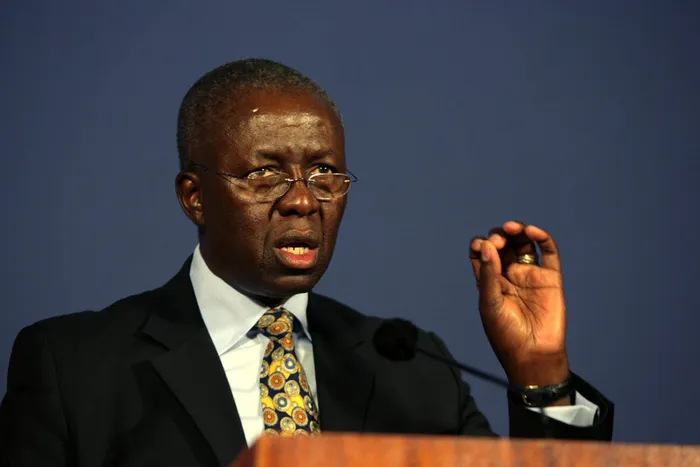Moseneke inquiry into local elections kicks off on Monday

Former Deputy Chief Justice Dikgang Moseneke. 2008. File photo: ANA
Former Deputy Chief Justice Dikgang Moseneke’s inquiry into whether South Africa can hold free, safe and fair local government elections on October 27, will tomorrow take oral submissions on whether the elections should go ahead as planned or not.
Among those lining up to make their oral submissions to Moseneke will be the country’s political parties, the Electoral Commission of SA (IEC), medical experts, electoral monitoring bodies and civil society organisations.
Last month the IEC appointed the inquiry, with Moseneke tasked with heading it, as concerns around South Africa’s ability to effectively hold the local government elections in the midst of the Covid-19 pandemic surfaced.
Some of the country’s political parties had also expressed concerns that the Covid-19 climate and the lockdown restrictions that were put in place by the government in an attempt to curb the spread of the pandemic, had hindered the ability of parties to successfully campaign and interact with their supporters ahead of the elections.
With Moseneke having promised to deliver the final report to the commission by July 21, players from various sectors will stake their claim before Moseneke on why they want the elections to go ahead or why they want them to be postponed.
Detailing logistics around the hearings, Moseneke said that the hearings would be held at Elections House,1303 Heuwel Road, Centurion Central, Centurion, Gauteng.
“The hearings will be open to the media and the public, although there may not be more than 20 people in attendance inside the venue at one time. Photography and broadcasting will be permitted at the hearings.
“Some stakeholders will be making oral presentations to the Inquiry via the video conferencing platform Zoom. The Zoom platform will be reserved for persons making presentations to the Inquiry,” Moseneke said.
The first to make an oral presentation before Moseneke tomorrow will be Sy Mamabolo, the Chief Electoral Officer of the IEC. Mamabolo’s presentation will be followed by one from the Department of Health’s Ministerial Advisory Committee on Covid-19.
Other presentations scheduled for tomorrow include those from the Health Justice Initiative, People’s Health Movement South Africa and the Progressive Health Forum.
“The Inquiry has endeavoured to ensure that the hearings are accessible to the media and the public, and hopes that the public will continue to meaningfully engage with the Inquiry as it undertakes this assignment of constitutional importance,” Moseneke added.
The IFP is one of the parties that called for the postponement of the local government elections, citing concerns over voter safety and the lack of campaigning and interaction with party supporters due to the Covid-19 lockdown restrictions on gatherings.
Earlier this month, IFP President Velenkosini Hlabisa told Independent Media that it was paramount for the government to put the lives of South Africans first, by postponing the elections to a later date or to have them by May 2022.
He said that the government simply could not risk plunging the country deeper into crisis, claiming that if infection rates soared, then a harder lockdown would be inevitable, and that this would cause irreparable damage to the country’s economy.
“This is why the IFP has been calling for the postponement of these elections. It is not an easy call to make, because we have already put in all the work to prepare for elections,” Hlabisa said.
Hlabisa, and several senior members of the IFP, including the party chief whip in the National Assembly, has called for the elections to be held in May 2022.
The EFF has also called for the postponement of the elections, albeit with a different date in mind for the holding of the elections. The red berets have proposed that the local government elections be synchronised with the 2024 national and provincial elections.